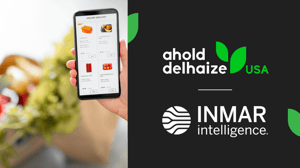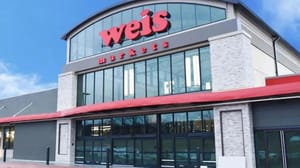The Private Paradigm
January 1, 2018
Natural food stores are challenging traditional supermarkets in the nonfoods private label realm. Driven by innovation and a competitive price point, private label brands are getting more attention—and demand—among a larger cross-section of shoppers than ever before. Industry observers say that supermarkets focusing on specialty categories, such as health and wellness, can drive demand among the most lucrative shopper demographics. Considered the “ugly duckling” of grocery assortments some 30 years ago, store brands are all grown up and proving they have chops. In some cases store brands have risen so high among supermarket offerings that they are considered premium products. Competing against highly-recognized and established national brands, and even promoted as “exclusive merchandise,” savvy grocers are using their “brand-exclusive labels” to drive shopper loyalty, and long-term sales. “Grocers see the potential in continually growing a category such as private label,” says Cali Carter, marketing coordinator for Diamond Wipes International, based in Chino, Calif. “As shoppers become more aware of labels, ingredients, and product quality, the private label category will continue to gain confidence from consumers.” One of the keys to success is working with savvy private label manufacturer partners that can help decipher the trends to create a true differentiating product. “It is a differentiator if a retailer chooses a strategic vendor that can go beyond just supplying goods and instead deliver all of the frills and extras,” says a spokesperson from U.S. Nonwovens, based in Brentwood, N.Y. “Those extra virtues and services are what set up a private label program for success and thus, helps a grocer create a differentiator.” It is these partnerships that continue to drive private label’s upward sales trends. Specifically, the category is reporting 4.1% growth annually, according to Private Label & National Brands: Paving the Path to Growth Together a report from Chicago-based IRI. Observers say this growth goes directly to the bottom line, as grocers need little to no promotional activity to support private label merchandise or new product initiatives. Instead, observers add, they are able to spend capital on refining their exclusive “house brand,” and focus on new programs that will maximize differentiation, positioning and customer loyalty. As channel blurring continues to give consumers more options than ever of where to spend their discretionary income, some retail segments are giving grocers a run for their money when it comes to non-food private label assortments. For example, many consumers continue their love affair with buying their products at natural food markets, such as Whole Foods and Trader Joe’s. This segment is getting an additional boost from shoppers that continue to jump on the healthy lifestyle bandwagon. While this group continues to influence the supermarket industry’s natural and organic offerings, many consumers are opting to shop at natural food retailers that excel at marketing non-foods private label merchandise. “They have the ability to cross-merchandise and offer trials in their stores much easier than traditional supermarkets,” says Brian Sharoff, president, Private Label Manufacturers Association (PLMA), based in New York. Whole Foods, for example, hosted its first-ever Beauty Week in March, an event that featured all things beauty-related. Here, the retailer’s Whole Body departments hosted promotions, classes and demonstrations educating shoppers about Whole Foods Market’s large selection of personal care products and cosmetics, including items across the retailer’s “365 Everyday Value” private label line that caters to affordable supplements and body care. Conventional supermarket chains are learning that private label success in the health and wellness arena takes more than just featuring items with “healthy” branding, however. Observers say traditional grocers often struggle with integrating the health and beauty category, or addressing an adequate amount of merchandise to meet consumers’ lifestyle needs. “Think of health and beauty care as more of a lifestyle, maybe linking it into wellness, and going beyond vitamins or cosmetics,” says Andre Siefken of CMO, Daymon Worldwide, based in Stamford, Conn. “You have to go a little bit further and go into general merchandise, and then display completely different.” Taking this one step further, Carter adds that successful grocers “can create competitive products based on what’s trending in the market, such as organic ingredients, product variety, environmental friendliness, healthy options free from questionable ingredients, and of course, convenience.” Product may be the hero of a non-foods private label program, but to create longevity and success, grocers should understand the needs of their shoppers. “You have to understand your consumers,” says Sharoff. “Are they upscale with plenty of money to spend? Or are they budget-minded and not looking to spend as much as when they go to an upscale store?” A Band-Aid Solution In addition to naturals, another category driving non-food private label is over-the-counter (OTC) merchandise. Part of the momentum stems from the Food and Drug Administration (FDA) ensuring that private label products are identical to what the leading brands provide. Another benefit is that “manufacturers have been very aggressive in getting products to market and retailers help them promote a broad variety of products,” says Jim Wisner, president, Wisner Marketing Group, based in Libertyville, Ill. “The quality has always been there, and there is a lot of supplemental marketing and merchandising to support store-brand medications.” Consumers, it seems, are taking notice. “Store brand OTC, which right now represents 59% by volume of all OTC products sold in the U.S., is where all the excitement really is,” he adds. “The FDA ensures that store brands are identical in terms of mechanism of action, active ingredients and how your body utilizes the drugs—and they are. They are the same thing, they just typically costs about 35% less.” One category getting a boost is personal care, based on consumers’ increasing trust in private label brands. “It is imperative that retailers continue to engage the consumer by offering advanced and innovative products that provide not only value but quality,” says Steven Corsun, owner and president of Premier Brands of America, based in Mount Vernon, N.Y. In the past, the trend amongst private label manufacturers was to provide a national brand equivalent (NBE) product that compares to the leading brands in the category. That “fast-follower” mentality is on the way out as many private label manufacturers have taken on a strategy of continuous innovation. Premier Brands illustrates this with the debut of its gel wart remover pen. This portable click-pen dispenses a maximum strength, 17% salicylic acid formula that removes common and plantar warts safely, hygienically and effectively. With so many new product introductions emerging across non-foods categories, consumers are doing due diligence online before even setting foot inside of a store. Specifically, digital technologies influence 36%, or $1.1 trillion of in-store retail sales, according to The New Digital Divide: Retailers, Shoppers and the Digital Influence Factor, a report from Deloitte Digital, based in Seattle. Where grocers may be making a mistake however, is putting all of their attention into pigeonholing their research efforts within ecommerce sites alone, say observers. “Every study we see, as it relates to online grocery and non-foods, puts online purchasing at about 4% and it really hasn’t grown,” says PLMA’s Sharoff. “All that’s grown are the number of consultants that say in the next five years it’s going to really explode. It’s not going to explode because they’re still looking at an old paradigm of how you sell online, not how it can be done.” Observers say that companies with an established Internet presence should evaluate how to leverage the medium as a more efficient way to present their brands to shoppers. “Today’s savvy consumers use retailer websites for coupons, deals and special offers, making a website a perfect place to present a new brand to shoppers,” says Lori Miller Burns, director of marketing for Arylessence. Officials for the Marietta, Ga.-based fragrance and flavor company see the value of the Internet, especially in its niche. “If you focus on powerful sensory factors like new fragrances, new scent combinations, new emotional experiences, you attract experiential shoppers who are most likely to try new products,” says Miller Burns. Beyond the traditional Internet, retailers should consider how to leverage interactive digital technologies that can drive loyalty and sales—especially as more shoppers are turning to social media tools to educate themselves prior to making purchases, say observers. Whether visiting supplier or supermarket social networks, forums, blogs, reading customer reviews or utilizing other interactive tools based on content sharing, more shoppers are getting comfortable on social media. Besides keeping in touch with friends, both actual and virtual, these touch points are helping shoppers research merchandise, search for innovations, collaborate with friends and family, and overall, form their opinions and make purchase decisions. Premier Brands, for example, is active on LinkedIn, making the company accessible to a new segment of digitally-savvy shoppers. After doing research online, the company discovered that “today’s consumers are more inclined to first visit their local store shelves to solve minor conditions and ailments, rather than visit a doctor for one’s needs,” says Premier Brands’ Corsun. “By offering more targeted and condition specific products, private label retailers can not only meet the consumer’s needs but stay ahead of the curve in the healthcare segment.” Add in shopper mobility and private label brands are accessible on the go, as well. “With the amount of time consumers spend on portable devices and sharing through social media, word of mouth is spreading rapidly without the need for big brand name advertising spending,” Diamond Wipes’ Carter says.
About the Author
You May Also Like




